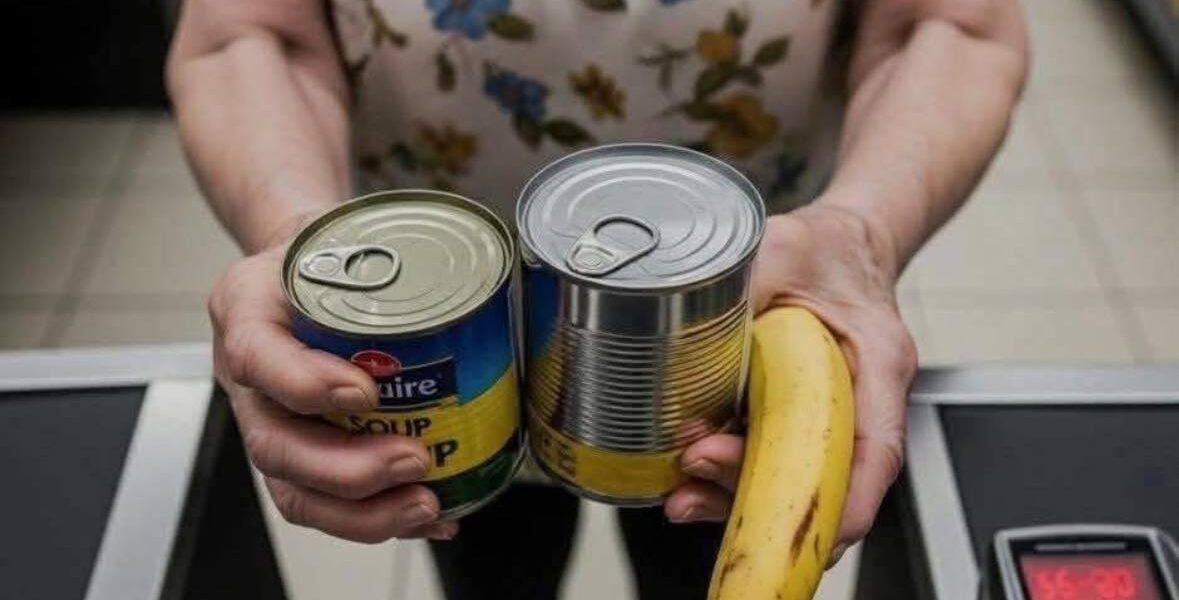The Canned Soup Lady

Every Friday night, just before closing time, she would shuffle through the automatic doors of our grocery store — tiny, hunched, always in the same worn floral dress and plastic sandals that barely held together. Her name, we later learned, was Rosaline, but around the store, people quietly referred to her as “the canned soup lady.”
She barely spoke English. Her Spanish accent was thick, and most times, she simply pointed at items with a gentle mutter. Every week, without fail, she bought two of the cheapest canned soups on sale — whatever was going for two cents a can — and a single banana. That was all.
She kept to herself. No one paid much attention, and honestly, neither did I. Until one night.
That evening, I noticed her at the register, softly arguing with the cashier. Her card wouldn’t go through. Her hands trembled as she held out a wrinkled coupon. “Por favor… just this once…” she whispered, almost pleading.
She looked utterly defeated — not embarrassed, not angry — just heartbroken.
Without thinking, I stepped forward and tapped her shoulder. “I’ll cover it,” I said gently.
She stared at me like she hadn’t heard right. Then tears came quickly, spilling down her cheeks as she gripped my arm with both hands. “You… kind soul,” she whispered, and I felt something inside me shift.
I offered to walk her to her car. She hesitated, then nodded. That’s when I found out the truth.
The soup wasn’t for her.
Every week, she told me, she cooked a giant pot of sopa de fideo in the community kitchen of her senior apartment complex. Then, when the sun set, she carried that pot — carefully, quietly — to the bus station nearby, where she ladled out soup to the homeless who took shelter there. Some knew her by name. Others just called her “Mama Rosa.”
And the banana? That was for her neighbor’s toddler — a little boy who, she said, “never has enough fruit.”
Rosaline lived on a fixed income. She barely had enough for herself. She sent what little she could to family overseas. Her diet was mostly rice and water, but still, she gave. Week after week, with no fanfare. No attention.
I was humbled. Ashamed, even. I had walked past her a dozen times, never once asking her name.
The next Friday, I came prepared. I brought her a cart full of donated cans from my coworkers. She burst into tears again, then handed me a tiny index card, carefully written in shaky handwriting.
“Para ti, mi amiga.”
It was her soup recipe.
A few weeks later, our store started a “kindness shelf.” People could leave items for Rosaline’s soup pot — pasta, tomato sauce, even veggies. She never asked for it. Never expected it. But she always used it.
Last month, she came to teach a group of high schoolers how to make her soup. They rolled their eyes at first, barely listening. But when a man — hunched and shivering in the alley — finished three bowls and whispered, “I feel human again,” they stopped complaining. Then, they stirred harder.
Rosaline still comes in every Friday. Same plastic shoes. Same soft voice. And still, those who don’t know her roll their eyes and call her “the canned soup lady.”
But now, when they do, I hand them a ladle and say, “Go help her serve.”
They always come back quieter. Changed.
Because sometimes, the most sacred things happen not in chapels or cathedrals — but in the quiet offering of soup from a borrowed pot, under the flickering lights of a bus station.
Let this story reach more hearts.



